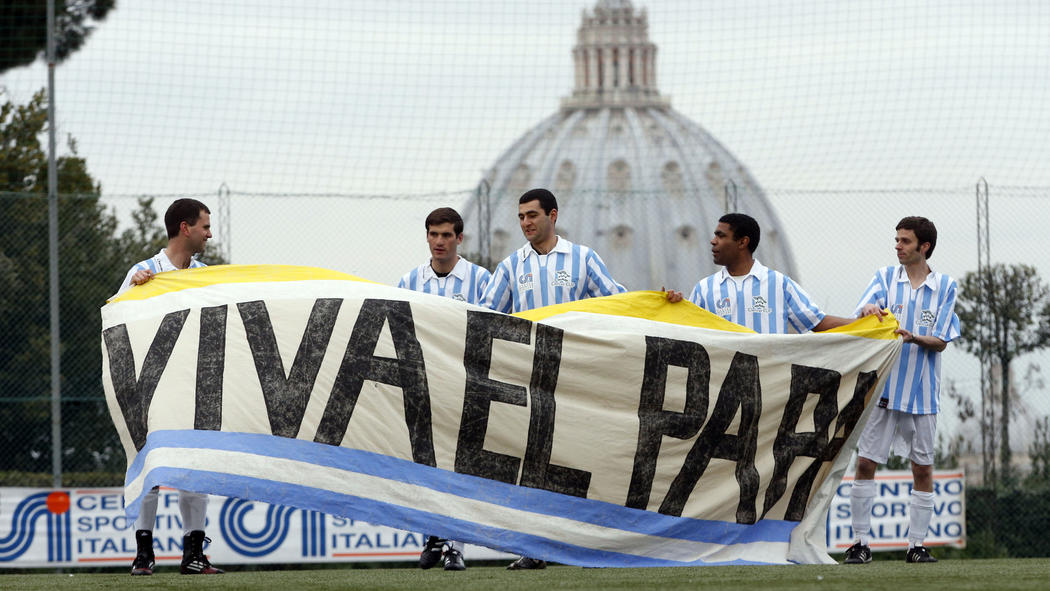
Since 2007, the Vatican has held an annual soccer tournament with 16 teams of players from pontifical institutes. The tournament coincides with the Easter season, as play extends from February to the end of June. The tournament includes both group and knockout rounds.
The Clericus Cup features players who either are priests or are studying to be priests. The tournament trophy is a soccer ball with cleats and a priestly saturno, a wide-brimmed hat. According to the Vatican, priestly formation is a primary reason for the Clericus Cup. Priests and seminarians play with and against each other, learning teamwork and leadership.
The importance of participation and engagement for the Clericus Cup may be seen in its inclusive rules. There are no weight restrictions. Play time is lessened in order to allow older players to participate with younger players. Among the Cup’s oldest players has been a dean of studies in his fifties. Even without a comparable women’s event, one can note that elements of the Clericus Cup—shortening the length of play, etc.—bear resemblance to the usual quibbles with women’s sport.
The reason for this inclusiveness is that the Vatican characterizes the lack of athletic opportunity as a deprivation for all individuals, not only male clerics. For the Vatican, participation in sports is a human right. In this, it takes a stance similar to the provisions for athletics in countries such as Greece, where provisions for athletics are enshrined within the Constitution as part of the individual’s right to develop himself or herself. By organizing the Clericus Cup, the Vatican gives men studying in Rome an opportunity to develop themselves as individuals and as pastors. Players from beyond Rome could be invited on the basis of the superior athletic skills, whether from Catholic universities or from parishes throughout the world. Yet, the pool of players is restricted to those able to train and play in Rome by virtue of academic or professional activity within the realm of the pontifical universities of Rome.
By Janelle Peters, Ph.D.
Janelle Peters, Ph.D., holds a doctorate from Emory University. She has taught at Dominican University, Lake Superior State University, and the University of St. Francis. Her book on ancient athletics is forthcoming from the University of Pennsylvania Press. Reach Peters at janelle@uchicago.edu.